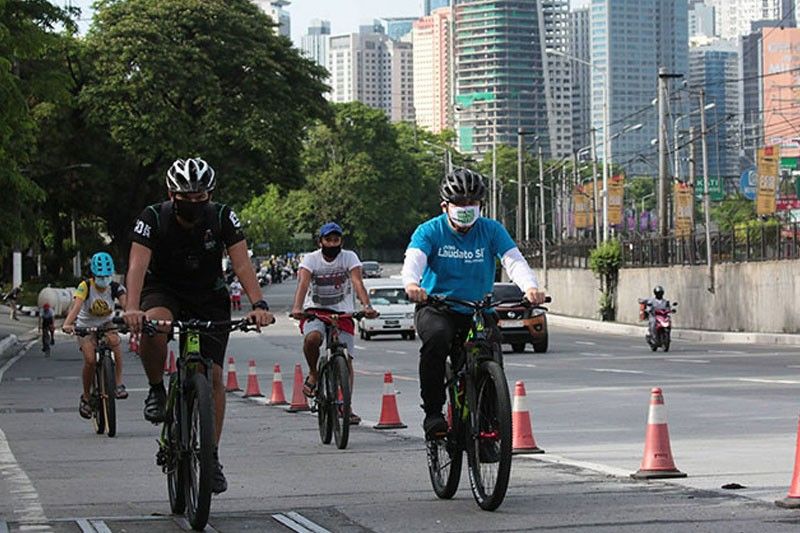Gov't urged: Prioritize people over cars

MANILA, Philippines — “This is not the normal that we want to have.”
Arnold Bufi, founder of Tipaklong Sustainability Mobility Corp., had this to say on the state of mobility in the Philippine cities, which is marred by unpredictable traffic and congested and expensive commutes.
While the pandemic underscored transport and commuter groups’ calls to prioritize pedestrians over cars, Bufi said the country can still “utilize our space and public assets better than what we do now.”
The past few weeks have burdened commuters and public utility drivers with a worsening transport crisis. Commuters are left scrambling over a shortage of transport supply and several public utility drivers are no longer plying the main roads due to succeeding fuel price hikes.
The minimum fare in public utility jeepneys also went up to P11 after the Land Transportation Franchising and Regulatory Board granted the petition of public transport groups.
In a June 30 online forum organized by Move as One coalition, Bufi suggested the future of the mobility sector should be “active, connected, electrified and shared.”
Citing a Social Weather Stations survey, Bufi said one in four households in the Philippines uses a bicycle. Filipinos’ increasing use of active transport has also driven up the demand for biking infrastructure, including bike lanes, physical separators and road signages.
In June last year, the Department of Transportation (DOTr) completed its P1.3-billion project of installing a 500-kilometer bike lane network in the Philippines’ metropolitan cities. This was split between Metro Manila with 313.12-kilometer (km) bike lane, Metro Cebu with 129.47 km, and Metro Davao with 54.74 km.
But transport group Move as One coalition recently stressed the need to build protected bike lanes amid reports of cycling-related crashes.
"Indeed, many Filipinos discovered the joys of cycling during the COVID-19 pandemic, [but] too many cyclists are dying on Philippine roads due to the lack of protected bike lanes," the statement reads.
Aside from active transport, Bufi also hoped for the mobility sector to be connected physically and digitally, where commuters can leave their bikes in train stations or use their mobile phones to unlock their electric scooters.
As a bike-rental business partnering with local communities, Tipaklong targets piloting its electric bicycle and scooter service with the University of Los Baños at the end of the year.
Bufi added that the mobility future should be shared, referencing the influx of private cars that he said are “not very economic and environment-friendly.”
“The sharing economy has been taking off for quite some time now. This is going to be a long-term trend moving forward,” he added.
In addressing commuter woes, Bufi said the government should promote active transport, micro-mobility as well as public transport.
“Right now, private cars [are] on top of this inverted pyramid and the walking is [at] the bottom. So we have to invert that and put private cars in their proper place,” he said. “So we have to put walking and pedestrians at the center of what we do.” — Intern, Jan Cuyco
- Latest
- Trending






























